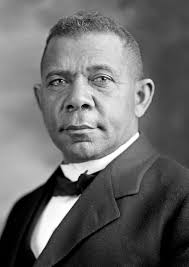
The secular worldview has morals, but it cannot rationally justify them or keep from them becoming relative at some point. Secularism, because of its rejection of God’s revelation in both nature and Word, has only humanity to guide it. There are no moral absolutes, and so what is morally right or wrong will eventually be modified.
This is very clear in the eagerness of the secularist to embrace medical dictatorship without critical complaint: the confinement without trial (nursing home residents), tearing families apart for months, destruction of personal incomes and the subsequent enrichment of the rule-makers and their colleagues, the banning of normal social behaviour, forcible wearing of face-coverings, and now a demand to surrender bodily autonomy are all what a few years ago would be called immoral.
Now these have become moral, and that shift came with almost no argument. People complain about the details, but went along anyway. The Christian faith provides the critical tools to examine, critique, and offer alternatives to each of these in a time of a worldwide pandemic, but cannot get a hearing. The response to the pandemic is demonstrably far worse than the disease, but the opinion that we are on the wrong track is limited only to outliers, certainly not the mainstream governmental officials, medical/scientific communities, media, and large business.
But the reason that Christians are largely ignored is because they are not there to be heard. Few are the committed Christians in any of the fields that control society: government, science, education, media, business, etc. They exist, but we have been absent for almost two centuries. It is now very difficult, but necessary, for large number of Christians who have a real Christian worldview, to enter all fields of human knowledge. I do not mean a Christian who goes to church on Sunday and operates in his/her profession on Monday as a pagan.
The reason for our long absence is the hold that dispensationalism and pietism has had and has now I the church. These views concede this world to Satan, even though the Bible does not. It relegates God to the heart, church, and in an increasing limited sense, to the family. A Christian would have to be totally asleep to fail to see that a secular mindset (which is in all-out war against the Christian worldview) is encroaching in every place humans inhabit. The willingness for the church to concede its worship, fellowship, and education to the state in these past few months is indicative of the degree to which the church has withdrawn.
It is the church that needs a Christian worldview most of all. I believe the near-death experience of Biblical Christianity in the West, which reached its peak in 2020-2021 has been long in coming. The church already had one foot out of the door and abandoned its commission to disciple the nations. And it is abandonment to reduce “disciple the nations” to “make church-goers of the nations.”
Here’s a test: if a medical doctor, a lawyer, a judge, or a parliamentarian is converted to Christ, what counsel do you give them for their profession? Do you tell them they must operate with honesty and integrity? Good. Do you tell them they must treat all cases that come to them with the same supposed objectivity and neutrality they exercised prior to their conversion? That is very bad. You are teaching them to live a lie, and are siding with secularism. You are teaching your disciple that their faith has no bearing in the “real world.” Secularists are not neutral nor objective, but their presuppositions and prejudices are expressed as though they are. There is no neutrality. Secularists pretend neutrality, and pietistic Christianity goes along with the charade.
This is how the church loses its belief in moral absolutes. When the secular world shifts, the church keeps up instead of critiquing the shift, offering alternatives, or resisting.
If your view is that to be involved in this world is just “shuffling deck chairs on the Titanic,” you need to repent of your non-Christian worldview. The world needs a Christian worldview, because no other approach will fulfill the desires God has for humanity and avoid His judgement. Of course, a secularist denies both judgement and God Himself, but that is irrelevant to the facts.


